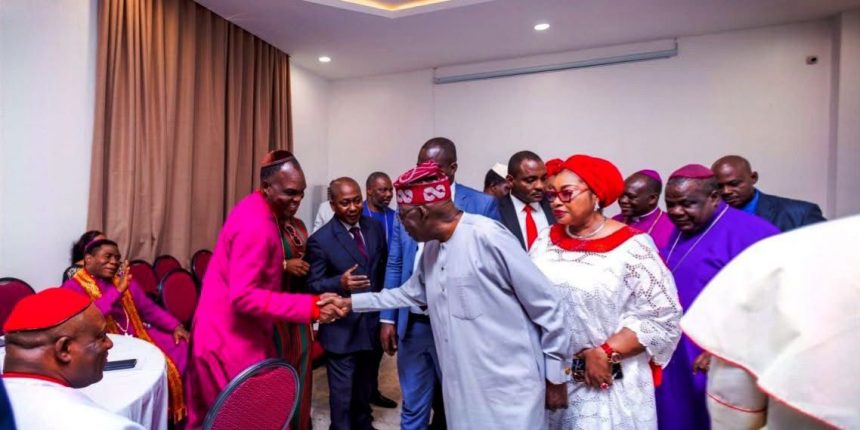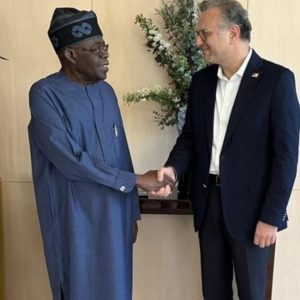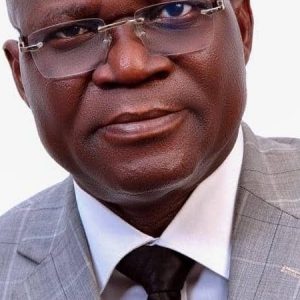I just saw a news flash that the Office of the National Security Adviser, Nuhu Ribadu, will address the press regarding President Donald Trump’s threat to deploy the U.S. military to Nigeria if the government fails to act against what he calls the “systemic persecution of Christians.” This follows Trump’s designation of Nigeria as a Country of Particular Concern under the International Religious Freedom Act.
While Ribadu’s press briefing may be procedurally sound, it risks sounding like a monologue unless it includes the voices of those most affected.
Where are the Christian leaders? Not just to rebut but to testify. The crisis escalated in Washington because only the negative voices were amplified: allegations from affected communities, echo chambers of foreign profiteers, and defensive rebuttals from government officials.

What’s missing is credible witness especially from patriotic, God-fearing Christians who can speak to what has changed in the last two years under Tinubu. If progress has been made, let it be heard. Silence is not neutrality; it’s surrender.
We’ve seen this strategy work before. When similar allegations were leveled against South Africa accusing the government of persecuting white farmers President Cyril Ramaphosa didn’t just issue a rebuttal. He brought farmers to the White House, where they testified that their lived experience contradicted the narrative being peddled. They didn’t deny the existence of challenges; they proved that those challenges were being rigorously addressed. Nigeria must do the same. Let those whose lives have been touched by reform speak not to whitewash, but to clarify.
Let’s be clear: concern for persecuted Christians is noble. But nobility loses its sheen when it becomes a geopolitical cudgel.
Trump’s rhetoric “guns-a-blazing” and “fast, vicious, and sweet” may reflect genuine frustration, but it also risks inflaming tensions and misrepresenting a complex reality.
Nigeria’s crisis is not a binary of Christian victimhood and government complicity. It is a tangled web of banditry, resource conflict, extremist insurgency, and weak institutions.
Christians have suffered, yes. But so have Muslims, especially in the North, where Boko Haram and other groups have killed indiscriminately.
As Bishop Matthew Hassan Kukah reminded the Vatican in October, “We are not dealing with people going around wielding machetes to kill me because I am a Christian. I live and work in Sokoto, right in the womb of Islam, where collaboration between Christians and Muslims remains possible.” He acknowledged that Nigeria’s security collapse created conditions for genocide in some communities, but cautioned against blanket labels. “Our lives should be defined by a better narrative,” he urged, warning that designating Nigeria as a Country of Particular Concern could harm fragile interfaith progress.
Systemic genocide is a grave charge and one that must be proven, not presumed.
Nigeria’s constitution guarantees religious freedom. In many communities, Christians and Muslims coexist peacefully, often with more tolerance than seen in supposedly advanced democracies.
President Tinubu’s visit to Jos earlier this year was a step in the right direction. His engagement with Christian leaders and his creation of the Livestock Development Ministry show a willingness to address root causes especially the herder-farmer clashes that fuel much of the violence. His directives to the new service chiefs signal urgency. “We must be decisive and proactive. Let us smash the new snakes right in the head,” Tinubu charged. But urgency must be matched with credibility. And credibility comes from truth-tellers, not just spokespersons.
Trump’s intervention, though undiplomatic, is a wake-up call. Nigeria must seize it not with defensiveness, but with decisive action. Clear the bandits. Disarm the expansionists. Protect every Nigerian, regardless of faith. And invite the world to see the truth not through filtered press releases, but through the testimonies of those who live it.
As Musa Kwakwanso rightly said, what Nigeria needs is not a threat, but technological support. Oversimplification will not solve this crisis. Military threats may escalate it. This is a time for Tinubu with the tact, wisdom, and moral clarity that he is known for to respond with dignity and resolve. Let the truth be spoken by those who have lived it.
Stay ahead with the latest updates!
Join The Podium Media on WhatsApp for real-time news alerts, breaking stories, and exclusive content delivered straight to your phone. Don’t miss a headline — subscribe now!
Chat with Us on WhatsApp





